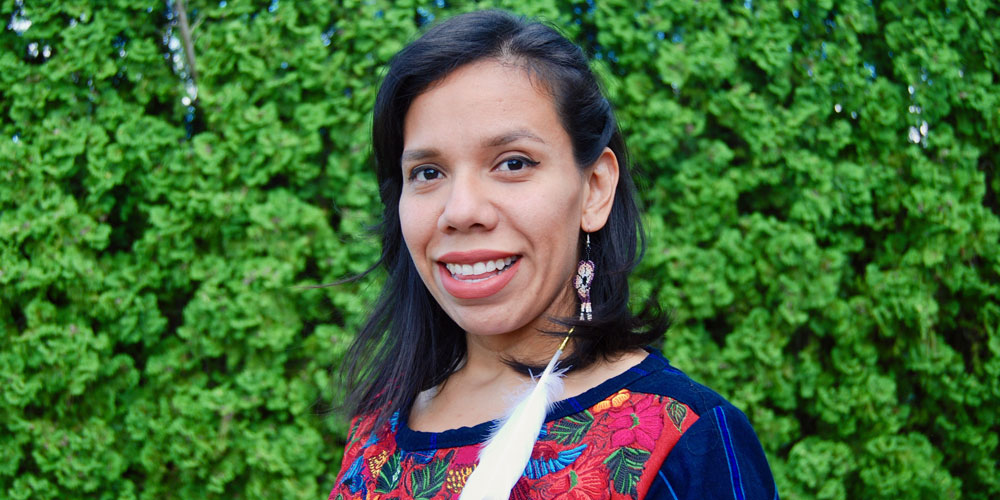
Monica Good, Assistant Professor of Teaching, FCCS
The Faculty of Creative and Critical Studies is pleased to welcome Monica Good as the newest faculty member to join the Department of Languages and World Literatures as an Assistant Professor of Teaching.
Monica has been with UBCO as a PhD student since 2013, which she completed in the summer of 2020. She has worked as a term instructor for the last two years, teaching first and second year Spanish language courses, and will be teaching World Literatures courses in the near future.
We met up with Monica to find out a bit more about her and her teaching practices.
Why did you choose to come to UBC Okanagan as a doctoral student?
I was interested in the Interdisciplinary program. UBC Okanagan is the perfect option for me because of the work done alongside Indigenous peoples to revitalize Indigenous languages and strengthen Indigenous knowledges. I wanted to work with Jeannette Armstrong, who has influenced my writing and way of thinking deeply. UBC Okanagan is the perfect place for my research to thrive.
Tell us about your research.
My research focuses on Indigenous peoples’ language and cultural revitalization, specifically in Mexico. Last year I collaborated with a group of scholars to organize the first Un-Conference for Indigenous Language Interpreters and Translators, an International meeting held in Oaxaca, Mexico, in August 2019. The Un-Conference yielded a peer-review publication, in which I published a chapter entitled “Training and Professionalization of Indigenous Language Translators.”
What most excites and challenges you about your field of Indigenous peoples’ language and culture?
Indigenous languages carry important knowledge about cultures, lands, and ceremonies. It is exciting to know that other scholars are also pursuing the revitalization of Indigenous languages. Briceida Sanchez Cob, Natalio Hernández, and Irma Alicia Velásquez Nimatij are outstanding examples. The negative imprints of a colonial regime that continue to afflict Indigenous languages challenge me. My language and my color continue to be both my place of resistance and my force of empowerment.
How did you know you wanted to be a professor?
When I arrived at UBC Okanagan as a graduate student I had the privilege of working alongside great faculty members such as Dr. Grisel Garcia-Perez. Her classes were always fun and student centered. She has been a great mentor of mine and under her guidance I realized that learning should be enjoyable and engaging as opposed to the rigorous teaching methods. I wanted to run a classroom the way Dr. García-Perez and Dr. Diana Carter did. It was under their guidance that I realized the educational stream was the perfect fit for me.
What kind of experiences do you offer to students?
I teach Spanish and, in the future, I will be joining the World Literatures program. While I often cannot take students out of the classroom, I can bring culture to them. In the past I have had guest speakers from Mexican Indigenous communities talk to students. I also take advantage of the curricula to include Indigenous knowledge and cultural aspects related to the Spanish speaking communities. The students find those lectures enriching. In the future, I would love to take students to Mexico as part of the Go-Global program.
About Monica Good
Monica Good holds a B.A. in Modern Languages from Emporia State University, Emporia, Kansas, an M.A. in Spanish-American Literature and Linguistics from New Mexico State University, and a PhD in Interdisciplinary Graduate Studies from UBC Okanagan.
Her work encompasses Indigenous language revitalization and linguistic rights for Indigenous peoples, specifically in the state of Oaxaca, Mexico. Her dissertation traces the role of the Indigenous language interpreter as a cultural and knowledge keeper. Monica has performed community engagement research in conjunction with Indigenous organizations in Mexico. Her research gives voice to Indigenous survivors of the legal system and advocates for better training programs for Indigenous language interpreters while interacting in the legal setting.